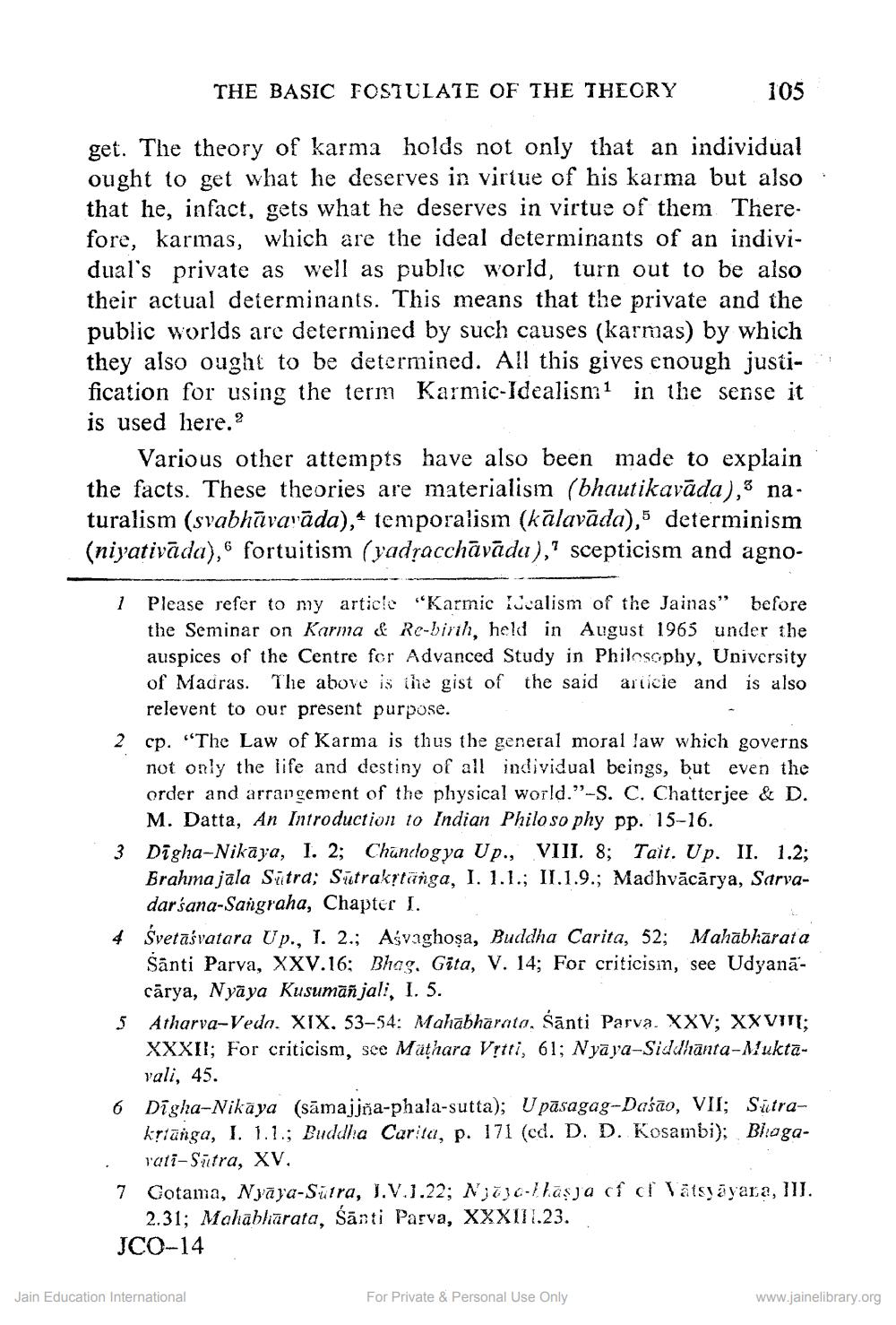________________
THE BASIC FOSTULATE OF THE THEORY
get. The theory of karma holds not only that an individual ought to get what he deserves in virtue of his karma but also that he, infact, gets what he deserves in virtue of them Therefore, karmas, which are the ideal determinants of an individual's private as well as public world, turn out to be also their actual determinants. This means that the private and the public worlds are determined by such causes (karmas) by which they also ought to be determined. All this gives enough justification for using the term Karmic-Idealism1 in the sense it is used here.2
Various other attempts have also been made to explain the facts. These theories are materialism (bhautikavāda), naturalism (svabhāvavāda),* temporalism (kālavāda),5 determinism (niyativada), fortuitism (yadṛacchāvāda),' scepticism and agno
105
1 Please refer to my article "Karmic Idealism of the Jainas" before the Seminar on Karma & Re-birth, held in August 1965 under the auspices of the Centre for Advanced Study in Philosophy, University of Madras. The above is the gist of the said article and is also relevent to our present purpose.
2 cp. "The Law of Karma is thus the general moral law which governs not only the life and destiny of all individual beings, but even the order and arrangement of the physical world."-S. C. Chatterjee & D. M. Datta, An Introduction to Indian Philosophy pp. 15-16.
3 Digha-Nikaya, I. 2; Chandogya Up., VIII. 8; Tait. Up. II. 1.2; Brahmajala Sutra; Sutrakṛtanga, I. 1.1.; II.1.9.; Madhvācārya, Sarvadarsana-Sangraha, Chapter I.
4 Svetasvatara Up., I. 2.; Asvaghosa, Buddha Carita, 52; Mahabharata Santi Parva, XXV.16: Bhag. Gita, V. 14; For criticism, see Udyanacārya, Nyaya Kusumañjali, I. 5.
5 Atharva-Veda. XIX. 53-54: Mahabharata, Santi Parva. XXV; XXVIII; XXXII; For criticism, see Mathara Vṛtti, 61; Nyaya-Siddhānta-Muktāvali, 45.
6 Digha-Nikaya (samajjña-phala-sutta); Upāsagag-Dasão, VII; Sutrakṛtanga, I. 1.1.; Buddha Carita, p. 171 (ed. D. D. Kosambi); Blagavati-Sutra, XV.
7 Gotama, Nyaya-Sutra, J.V.1.22; Njojo-khāṣja cf cf Vatsyayana, III. 2.31; Mahabharata, Śanti Parva, XXXIII.23.
JCO-14
Jain Education International
For Private & Personal Use Only
www.jainelibrary.org




